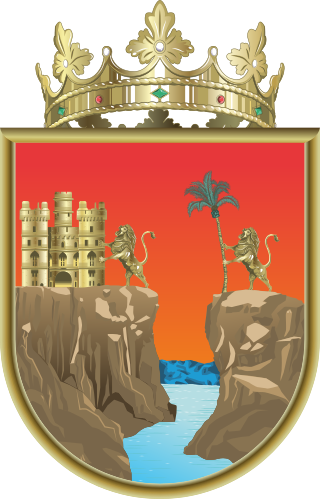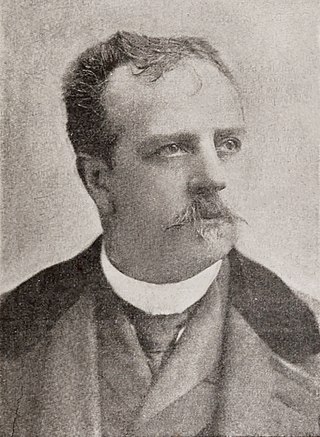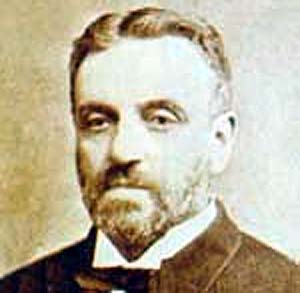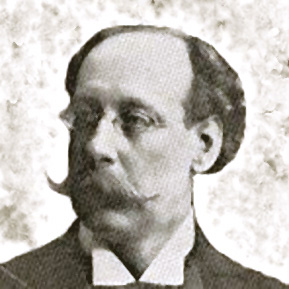Related Research Articles

José Manuel Emiliano Balmaceda Fernández served as the 10th President of Chile from September 18, 1886, to August 29, 1891. Balmaceda was part of the Castilian-Basque aristocracy in Chile. While he was president, his political disagreements with the Chilean congress led to the 1891 Chilean Civil War, following which he shot and killed himself.

The governor of Chiapas is the chief executive of the Mexican state of Chiapas. The state constitution stipulates a term of 6 years, to which governors can only be elected once. It also specifies the qualifications for becoming governor: a Mexican citizen by birth, aged at least 30 years old, and having not less than 5 years residency in Chiapas. The current governor is Rutilio Escandón from the MRN, who assumed the position in 2018.

Instituto Nacional General José Miguel Carrera, often shortened to Instituto Nacional, is a public boys' school in downtown Santiago, Chile which teaches 4.400 students between 7th and 12th grade. 170 teachers are employed.

The Montt family of Chile, descended from Catalan immigrants to the country, includes a number of people who achieved political office and prominence in other fields:
The Liberal Party was a Chilean political party created by a faction of pipiolos in 1849. After the conservative victory in the Chilean Civil War of 1829 the liberals became the principal opposition party to the Conservative Party. During the Liberal Party's early history one of its main goal was to create a new constitution to replace the Chilean Constitution of 1833. Rigged election helped to prevent the Liberal Party's presidential candidates to be elected until 1861, during that time elements of the liberal party made attempts to overthrow the government, these were the Revolution of 1851 and the Revolution of 1859. These failed insurrections led many liberals to emigrate, among them Benjamín Vicuña Mackenna. In 1863 a group of liberal split off to form the Radical Party which would hold power from 1938 to 1952. Originally an anticlericalist party that championed classical liberalism, the liberals later became a right-wing party.

Pedro Balmaceda Toro was a Chilean writer and journalist, considered the promoter of the Modernismo school in Latin America. Pedro Balmaceda was of Basque descent.

The Allende family is a Chilean family of Spanish descent. They became well known during the 19th century and are based in Santiago. They have played a very significant role in Chilean politics.

Melchor de Santiago-Concha y Toro, known as Melchor Concha y Toro was a Chilean businessman, lawyer, and politician.

Aníbal Zañartu Zañartu was a Chilean political figure. He served several times as minister and, for a brief time, as vice president in 1901. He was a member of the Liberal Party.

Pedro Vicente Reyes Palazuelos, was a Chilean lawyer, journalist, political figure, and candidate during the 1896 presidential election.

Ernesto Balmaceda Bello was a Chilean diplomat, who was murdered in Belgium in a celebrated case that came to define diplomatic privileges and immunities for the retinue and families of diplomatic staff. He was of Basque descent.

José Rafael del Carmen Balmaceda Fernández was a Chilean politician, diplomat and brother of President José Manuel Balmaceda. He was of Basque descent.
Enrique Víctor Aquiles Balmaceda Toro was a Chilean politician, diplomat and son of President José Manuel Balmaceda. He was of Basque descent and a member of the Balmaceda family.
Many Basques arrived in Chile in the 16th, 17th, 18th, 19th and early 20th century from their homeland in northern Spain and parts of southwestern France, as conquistadors, soldiers, sailors, merchants, priests and labourers. Due to their traditional hard work and entrepreneurship, many of them rose to the top of the social scale and intermarried into the Chilean elites of Castilian descent, giving birth to the new Basque-Chilean aristocracy in Chile. This union is the basis of the Chilean elite of today. But also, they immensely contributed to the ethnic make up of the bulk of the Chilean population. The Basque settlers also intermarried into the Mestizo and Castizo population of central Chile in the middle of the colonial period to form the large Criollo population that exists in Chile today; Castizos create modern middle and lower classes. Many years after the first waves of settlers, thousands of Basque refugees fleeing Spanish Civil War in 1939 also settled and have many descendants in the country and have even intermarried with Spanish ethnic groups other than Castilians, and other European ethnic groups. An estimated 1.6 million (10%) to 5 million (30%) Chileans have a surname of Basque origin. This figure is to the least as the number of Basque descendence is great and plentiful. If one were to compare the large wave of Basques that fled to the population in the Basque Country you can see that in a way ethnically speaking Chile has more Basque blood than the country of origin.

José Antonio Gandarillas Luco was a Chilean lawyer and Liberal politician.

Pedro José Domingo de Guerra was a Bolivian jurist who served as the acting President of Bolivia in 1879 in the absence of Hilarión Daza who was personally commanding the Bolivian Army in the War of the Pacific between Chile, and an allied Bolivia and Peru. His grandson, José Gutiérrez Guerra, was also president of Bolivia between 1917 and 1920.

Lux Balmaceda Pascal is an American-born Chilean actress and transgender activist. She is known for her roles in the Chilean television series Veinteañero a los 40 and Juana Brava and the Chilean drama film The Prince.

Carlos Balmaceda Saavedra was a Chilean agricultural engineer, businessman and politician, member of the Liberal Democratic Party. He served as a congressman during the 1900s and 1910s, as well as Minister of State under the governments of Presidents Pedro Montt, Carlos Ibáñez del Campo and Juan Esteban Montero.
References
- ↑ Historia de Chile. Html.rincondelvago.com (2003-06-26). Retrieved on 2016-05-09.